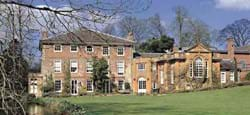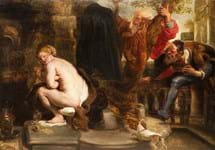
ATG understands the new manifesto will water down earlier proposals to push for a system where the trade in old ivory would be permitted, but more tightly controlled.
A government source told ATG: “Pre-1947 ivory wouldn’t be banned, but a robust system will be put in place. Ivory will have to be certified.”
Any change in stance will be welcomed by the art and antiques industry, which has been campaigning to defend the trade in antiques containing ivory. The 2010 and 2015 Conservative manifestos contained pledges to implement a “total ban on ivory sales”.
Victoria Borwick MP, the president of the British Antiques Dealers’ Association (BADA), could not comment on the manifesto, but said she had submitted representations on behalf of the antiques trade.
Industry associations have also been in contact with the government to lobby for the continued trade in pre-1947 objects containing ivory, while reiterating its support for the preservation of endangered wildlife.
“Pre-1947 ivory wouldn’t be banned, but a robust system will be put in place”
It is understood that a system of certification to prove the age of ivory is being looked at by government. However, further discussion will take place relating to how this could work in practice.
The issue is contentious and influential figures, including Lord (William) Hague, foreign secretary Boris Johnson and the Duke of Cambridge, have been pushing for a total ban on the UK ivory trade.
Consultation delay
In September, environment secretary Andrea Leadsom unveiled proposals to stamp out the trade in all post-1947 ivory and announced plans for a consultation with the trade.
However, this planned consultation by the Department for Environment Food & Rural Affairs could now be delayed indefinitely, partly due to the election.
The Conservative Party did not respond to a request for comment as ATG went to press.














